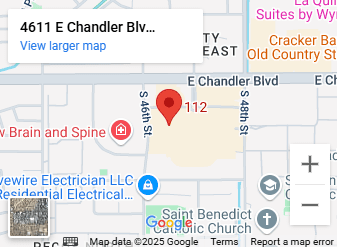Article: # Avoid These 7 Common Mistakes When Utilizing a Business Broker in Phoenix to Sell Your Business
Selling a Phoenix business without recognizing the seven most common errors can undermine your valuation, delay your deal, and erode confidentiality. This guide reveals each critical pitfall—from mispricing and disclosure slip-ups to emotional negotiations, broker selection, operational neglect, and buyer vetting—alongside actionable steps to safeguard value and close smoothly. You’ll learn how to:
- Tackle business valuation pitfalls
- Preserve confidentiality and streamline disclosures
- Prepare complete due diligence materials
- Structure negotiations rationally
- Choose a qualified local broker
- Maintain peak operations during the sale
- Qualify buyers efficiently
With this roadmap, you’ll avoid hidden risks and leverage a broker’s expertise to achieve a seamless, profitable sale.
What Are the Most Common Business Valuation Mistakes When Working With a Phoenix Business Broker?

Business valuation mistakes arise when owners set unrealistic prices or ignore market data, resulting in stalled negotiations or undervalued deals. Accurate valuation drives buyer interest, aligns expectations, and reflects Phoenix’s unique growth trends. For instance, misjudging industry multiples or skipping third-party appraisals can cost you thousands or push buyers away.
| Entity | Attribute | Value |
|---|---|---|
| Overpricing Your Business | Consequence | Extended time on market and reduced buyer interest |
| Undervaluing Your Business | Consequence | Lower sale proceeds and potential buyer mistrust |
| Ignoring Market Trends | Consequence | Misaligned expectations with local economic conditions |
| Skipping Professional Appraisal | Consequence | Inaccurate asking price lacking credible justification |
These common pitfalls highlight why professional valuation and market analysis are indispensable before listing a Phoenix business.
How Does Overpricing Your Phoenix Business Impact the Sale?
Setting an asking price above realistic market value repels qualified buyers and prolongs the sale process by sending a signal of inflexibility. Overpricing creates misaligned expectations, leading to repeated lowball offers or no offers at all. By anchoring too high, you risk stagnation and may ultimately accept a lower price after months of wasted time.
Why Is Undervaluing Your Business a Risk in Phoenix?
Undervaluing your business sacrifices potential profit and undermines buyer confidence. A price set significantly below fair market value suggests hidden problems, prompting buyers to probe aggressively or withdraw. Properly reflecting asset values, earnings multiples, and business valuation metrics ensures you capture full value without triggering suspicion.
How Do Phoenix Market Trends Affect Business Valuation Accuracy?
Local growth rates, sector expansions, and labor costs in Phoenix directly influence multiples and earnings projections. Ignoring rapid job market gains or rising real estate expenses distorts revenue forecasts and asset appraisals. Aligning your valuation with up-to-date regional data safeguards against overoptimism or undue conservatism.
What Steps Can You Take to Ensure a Professional Business Valuation in Phoenix?
- Engage a certified business intermediary or valuation expert.
- Compare three valuation methods: income, market, and asset approaches.
- Compile three years of audited financial statements.
- Analyze sector-specific multiples from local transactions.
- Review Phoenix economic reports for current trends.
Business Valuation Methods
Business valuation often employs three main approaches: the income approach, the market approach, and the asset approach. The income approach focuses on the business’s ability to generate earnings, the market approach compares the business to similar businesses that have been sold, and the asset approach considers the value of the company’s assets.
Damodaran, A., Valuation: Measuring and Managing the Value of Companies (2021)
This research supports the article’s recommendation to compare different valuation methods when assessing a business’s worth.
By following these steps, you establish credibility and set a defensible price that attracts serious buyers.
How Can You Avoid Confidentiality and Disclosure Errors During Your Phoenix Business Sale?

Leaking sensitive information prematurely can derail negotiations, diminish employee morale, and fuel competitor actions. Confidentiality and precise disclosure protocols protect your value during each sale phase by ensuring only vetted parties access key data under legal safeguards, business owners.
What Are the Risks of Leaking Confidential Information in a Phoenix Business Sale?
A breach of confidentiality may cause vendor price hikes, employee departures, and competitor encroachment. Public rumors of a sale erode customer confidence and can prompt partners to renegotiate terms. Preventing leaks preserves operational stability and negotiating leverage.
Why Are Non-Disclosure Agreements (NDAs) Essential When Selling a Business in Phoenix?
NDAs legally bind potential buyers to maintain secrecy over financials, trade secrets, and operational metrics. They deter casual inquiries and enable staged information release. A well-drafted NDA clarifies permitted disclosures, outlines remedies for breach, and assures sellers that buyers are committed to due diligence.
Importance of Non-Disclosure Agreements (NDAs)
Non-Disclosure Agreements (NDAs) are crucial in business sales to protect confidential information. They legally bind potential buyers to maintain the secrecy of sensitive data, such as financial records and trade secrets, ensuring that only vetted parties access key information under legal safeguards.
American Bar Association, Model Business Corporation Act (2023)
This citation reinforces the article’s emphasis on the importance of NDAs in safeguarding confidential information during the sale of a business.
Disclose data in tiers:
- Stage 1: Executive summary with high-level financials
- Stage 2: Detailed P&L, balance sheets, and cash flows under NDA
- Stage 3: Customer contracts, vendor agreements, and operational metrics upon LOI
This phased approach balances transparency with control, ensuring buyers receive necessary details as trust builds.
What Are Effective Strategies to Maintain Confidentiality Throughout the Sale Process?
- Centralize documents on a secure virtual data room.
- Assign unique user credentials to each buyer.
- Redact non-essential personal or proprietary information.
- Monitor download and viewing logs regularly.
- Review NDA compliance clauses and enforce penalties for violations.
Maintaining strict protocols prevents unintended disclosures and keeps the sale on track.
What Due Diligence Pitfalls Should Sellers Avoid When Working With a Phoenix Business Broker?
Incomplete or disorganized due diligence materials erode buyer confidence and cause costly deal delays. Thoroughly prepared documentation demonstrates reliability and expedites transaction timelines.
How Does Inadequate Preparation of Financial Records Delay Phoenix Business Sales?
Missing or inconsistent financial statements trigger buyer skepticism, raising concerns about hidden debts or cash-flow instability. Incomplete records prompt extensive follow-up requests, stretching due diligence from weeks to months and increasing the risk of buyer drop-off.
What Legal and Compliance Issues Are Commonly Overlooked in Phoenix Business Sales?
Many sellers neglect licensing renewals, environmental permits, and franchise or zoning requirements. Ignoring pending litigation, unrecorded liens, or labor compliance violations can emerge as deal-breaking surprises, forcing renegotiation or contract rescission.
Which Documents Are Essential for a Smooth Due Diligence Process in Phoenix?
| Entity | Attribute | Value |
|---|---|---|
| Financial Statements | Years Covered | Last 3–5 years of audited records |
| Tax Returns | Scope | Federal and state filings for 3 years |
| Contracts | Types | Leases, vendor agreements, customer contracts |
| Permits & Licenses | Categories | Operational, environmental, zoning |
| Intellectual Property | Documentation | Trademarks, patents, copyrights |
Presenting these documents cohesively reduces buyer friction and reinforces your business’s credibility.
How Can Sellers Organize Due Diligence Materials to Build Buyer Confidence?
- Use a logical folder structure within your data room.
- Index each document with summaries or meta-tags.
- Provide a due diligence checklist highlighting completed items.
- Offer a Q&A log to track questions and responses promptly.
These measures convey professionalism and accelerate buyer decision-making.
How Can Emotional Negotiation and Poor Deal Structure Harm Your Phoenix Business Sale?
Emotional decision-making undermines objective judgment, while poorly designed deal terms expose sellers to financial risk. Adopting rational structures and expert support yields fair outcomes and protects long-term interests.
Why Is Emotional Decision-Making a Common Mistake in Phoenix Business Negotiations?
Owners often react defensively to low offers or personal criticism, leading to abrupt walk-aways or unstrategic concessions. Emotions like pride or fear can overshadow financial logic, reducing sale proceeds or stalling progress.
What Deal Structures Should Sellers Consider to Maximize Sale Success in Phoenix?
- Seller Financing – Offering partial financing attracts buyers and can command a premium.
- Earn-Outs – Tying payments to future performance aligns incentives and bridges valuation gaps.
- Asset Purchase vs. Stock Sale – Choosing the optimal structure manages tax exposure and liability allocation.
- Escrow Arrangements – Holding funds in escrow for indemnity obligations fosters trust.
Evaluating these options with your broker ensures a tailored deal that balances risk and reward.
How Can Professional Negotiation Assistance Improve Your Sale Outcome?
A business broker negotiates impartially, leveraging market data and deal precedents to counter emotional biases. They draft clear term sheets, anticipate buyer objections, and secure favorable financing or escrow terms, often increasing net proceeds by 10–20%.
What Are Examples of Poor Negotiation Tactics to Avoid?
- Accepting the first offer without comparison.
- Using ultimatums that alienate buyers.
- Overloading negotiations with irrelevant grievances.
- Ignoring tax or liability implications in deal terms.
By avoiding these missteps and relying on structured frameworks, you preserve leverage and protect your interests.
Why Is Choosing the Right Phoenix Business Broker Crucial to Avoid Costly Mistakes?
A local, qualified broker brings market expertise, buyer networks, and transaction know-how. Going it alone or hiring an inexperienced intermediary risks undervaluation, confidentiality breaches, and deal collapse.
What Are the Risks of Selling Your Business Without a Qualified Phoenix Broker?
- Mispricing due to lack of market data.
- Confidential lists circulating unchecked.
- Negotiation blunders driven by inexperience.
- Regulatory or legal oversights specific to Arizona.
These risks can reduce sale proceeds by up to 30% and lengthen time on market.
How Do You Identify a Qualified and Experienced Business Broker in Phoenix?
- Certification from the International Business Brokers Association (IBBA).
- Proven track record with local transactions.
- Strong buyer networks in relevant industries.
- Transparent fee structures and clear performance metrics.
- Positive testimonials and professional referrals.
What Role Does Legal Counsel Play Alongside Your Business Broker?
An experienced business attorney reviews transaction documents, ensures compliance with state regulations, and negotiates liability clauses. Combined with broker-led valuation and marketing, legal counsel secures safe contract execution and mitigates post-closing disputes.
How Can Hiring the Right Broker Streamline Your Business Sale Process?
- Targeted marketing to pre-qualified buyers.
- Data-driven valuation and price benchmarking.
- Staged due diligence coordination.
- Expert negotiation and deal structuring.
This integrated approach reduces time on market and maximizes net proceeds.
How Can You Maintain Business Operations and Value While Selling Your Phoenix Business?
Sustaining performance during a sale reassures buyers and preserves momentum. Operational neglect signals instability and can erode both earnings and goodwill.
Why Is Neglecting Daily Business Operations a Common Seller Mistake?
Owners consumed by sale tasks often defer marketing, customer outreach, or staff management. Declines in revenue or service quality then undermine valuation and buyer confidence, creating a self-fulfilling slump.
What Are Best Practices for Managing Your Business During the Sale Process?
- Delegate day-to-day operations to a trusted manager.
- Establish KPI dashboards to monitor performance remotely.
- Maintain regular customer and vendor communications.
- Schedule weekly check-ins with your broker to align on milestones.
By preserving operational excellence, you reinforce the stability buyers seek.
How Should You Plan Your Exit Strategy to Support a Smooth Transition?
- Key personnel and their roles post-sale.
- Training schedules and knowledge-transfer protocols.
- Legacy client or vendor introductions.
- Post-closing support commitments and milestones.
A clear exit strategy reduces buyer uncertainty and accelerates deal closure.
What Delegation Strategies Help Maintain Peak Performance During Sale?
- Identify Critical Tasks – Delegate routine functions first.
- Empower Trusted Leadership – Assign authority with clear performance targets.
- Implement Reporting Protocols – Require concise daily or weekly updates.
- Use Project Management Tools – Track progress transparently.
Effective delegation safeguards both operations and your focus on the sale.
How Do You Properly Qualify and Vet Potential Buyers When Selling a Business in Phoenix?
Engaging unqualified buyers wastes time and erodes momentum. A structured vetting process ensures you focus on serious candidates ready to close.
What Are the Signs of Unqualified Buyers That Waste Your Time?
- Requests for full disclosures without NDA commitment.
- Inability to demonstrate funding sources or financing letters.
- Repeated changes in deal structure expectations.
- Lack of industry experience or unrealistic growth projections.
How Can You Conduct Effective Financial and Background Checks on Buyers?
- Require proof of funds or lender pre-approval.
- Review credit and banking references.
- Conduct background searches for litigation or regulatory issues.
- Verify relevant industry experience and track record.
Why Is Buyer Qualification Critical to a Successful Phoenix Business Sale?
Qualified buyers close faster and with fewer contingencies, reducing due diligence loops and enabling predictable timelines. Proper vetting also minimizes the risk of deal fall-through late in negotiations.
What Tools and Techniques Can Help Streamline Buyer Vetting?
| Entity | Attribute | Value |
|---|---|---|
| Secure Data Room | Function | Centralizes buyer credentials |
| Automated Checklists | Purpose | Ensures all vetting steps covered |
| CRM Integration | Benefit | Tracks buyer engagement history |
| Pre-Screen Questionnaires | Usage | Gathers funding and background details |
Implementing these systems accelerates vetting, focuses broker resources, and sustains deal momentum.
Efficiently avoiding these seven pitfalls—valuation errors, confidentiality breaches, unprepared due diligence, emotional negotiations, poor broker selection, operational neglect, and weak buyer vetting—empowers you to secure a profitable Phoenix business sale. By combining rigorous preparation, objective deal structuring, and the right advisory team, you protect your hard-earned value and achieve a seamless transaction. Ready to optimize your sale? Explore our strategic brokerage services or learn more about professional valuation to take the next step toward a successful exit.




